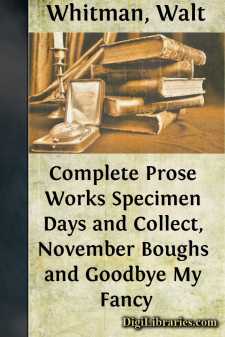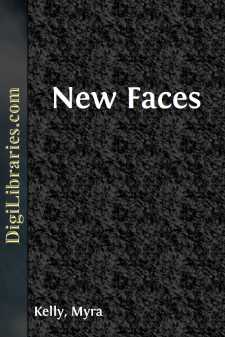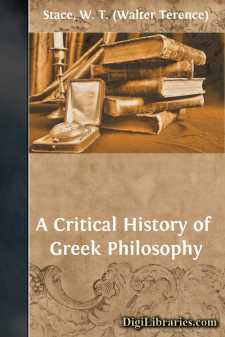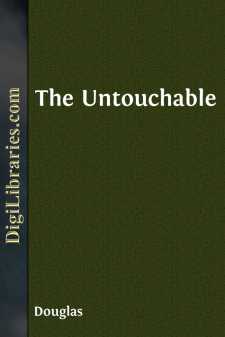Fiction
- Action & Adventure 180
- Biographical 15
- Christian 59
- Classics 6965
- Coming of Age 5
- Contemporary Women 3
- Erotica 8
- Espionage/Intrigue 12
- Fairy Tales, Folklore & Mythology 236
- Family Life 169
- Fantasy 117
- Gay 1
- General 596
- Ghost 32
- Historical 808
- Horror 43
- Humorous 160
- Jewish 25
- Legal 4
- Medical 22
- Mystery & Detective 315
- Political 49
- Psychological 41
- Religious 64
- Romance 159
- Sagas 11
- Science Fiction 730
- Sea Stories 113
- Short Stories (single author) 537
- Sports 10
- Suspense 1
- Technological 8
- Thrillers 2
- Urban Life 31
- Visionary & Metaphysical 1
- War & Military 173
- Westerns 199
Fiction Books
Sort by:
by:
Anonymous
CHAPTER I. CHILDHOOD AND YOUTH OF THE SAINTLY CURÉ. JEAN Baptist Marie Vianney, afterwards to become famous as the curé of Ars, was born May 8th, 1786, at Dardilly, in the South of France, not far from the City of Lyons, and was the fourth child of humble country folks. His father, Mathieu Vianney, and his mother, Marie Beluse, possessed some land adjoining their simple dwelling. Despite the fact...
more...
by:
Walt Whitman
A HAPPY HOUR'S COMMAND Down in the Woods, July 2d, 1882.-If I do it at all I must delay no longer. Incongruous and full of skips and jumps as is that huddle of diary-jottings, war-memoranda of 1862-'65, Nature-notes of 1877-'81, with Western and Canadian observations afterwards, all bundled up and tied by a big string, the resolution and indeed mandate comes to me this day, this...
more...
by:
Joseph Jacobs
PREFACE From the extreme West of the Indo-European world, we go this year to the extreme East. From the soft rain and green turf of Gaeldom, we seek the garish sun and arid soil of the Hindoo. In the Land of Ire, the belief in fairies, gnomes, ogres and monsters is all but dead; in the Land of Ind it still flourishes in all the vigour of animism. Soils and national characters differ; but fairy tales...
more...
A PRELIMINARY WORD The writer of this Tale ventures, in his own person, to address a very few words, chiefly of explanation, to his readers. A leading situation in this 'Story of Bartram-Haugh' is repeated, with a slight variation, from a short magazine tale of some fifteen pages written by him, and published long ago in a periodical under the title of 'A Passage in the Secret History of...
more...
You say that Matthew is your own son, Mr. Emmett? Yes, Rev'rend Doane, and a better boy never stepped, if I do say it as shouldn't. I've trusted him to drive team for me since he was eleven, and you can't say more than that for a farm boy. Way back when he was a little shaver so high, when the war came on, he was bounden he was going to sail with this Admiral Farragut. You know boys...
more...
by:
Myra Kelly
A business meeting of the Lady Hyacinths Shirt-Waist Club was in progress. The roll had been called. The twenty members were all present and the Secretary had read the minutes of the last meeting. These formalities had consumed only a few moments and the club was ready to fall upon its shirt waists. The sewing-machines were oiled and uncovered, the cutting-table was cleared, every Hyacinth had her box...
more...
PREFACE This book contains the substance, and for the most part the words, of a course of public lectures delivered during the first three months of 1919. The original division into lectures has been dropped, the matter being more conveniently redivided into chapters. The audience to whom the lectures were delivered was composed of members of the general public, and not only of students. For the most...
more...
by:
Douglas
HE man finally entered the office of General George . As the door closed behind him, he saw the general, who sprang from his chair to greet him. “Max! You finally came.” “Got here as soon as I could. I wager half my time was taken up by the security check points. You are certainly isolated in here.” “All of that,” agreed the general. “Have a seat, won’t you?” he asked, indicating a...
more...
Near where St. Abb stretches, in massive strength, into the sea, still terrible, even in ruins, may be seen the remains of Fast Castle, one of the most interesting in its history—as it is the most fearfully romantic in its situation—of all the mouldering strongholds which are still to be traced among the Borders, like monuments of war, crumbling into nothingness beneath the silent but destroying...
more...
CHAPTER 1 Of all the remote streams of influence that pour both before and after birth into the channel of our being, what an insignificant few—and these only the more obvious—are traceable at all. We swim in a sea of environment and heredity, are tossed hither and thither by we know not what cross currents of Fate, are tugged at by a thousand eddies of which we never dream. The sum of it all makes...
more...











